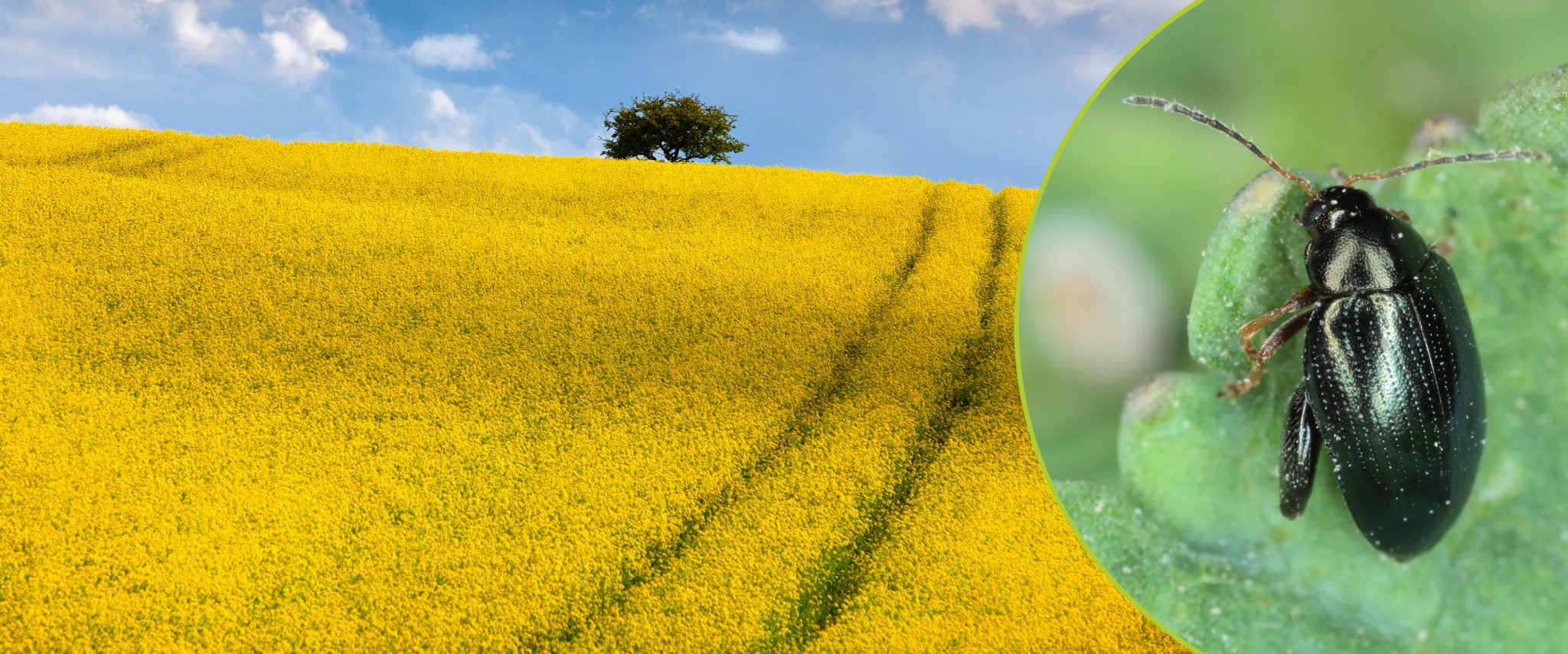The workshop shared findings from a feasibility project, which aims to develop a novel biopesticide to help oilseed rape farmers overcome damage caused by the insect pest.
This included initial laboratory studies to determine the efficacy of a strain of entomopathogenic fungus Isaria fumosorosea, in killing larval and adult stages of CSFB. Work on the up-scaling of spore production in preparation for a future commercial launch of both foliar and seed treatment products was also shared.
Partners in the project are CABI, Russell Bio Solutions Ltd and H&T Bioseed. CHAP Innovation Sector Lead Richard Glass, said: “Cabbage stem flea beetle is a huge problem for oilseed rape growers and will remain as such given the ban on neonicotinoid insecticides and increasing resistance to pyrethroids.
“The project is addressing this through the development of a new non-synthetic control method, with multiple potential delivery mechanisms. Although still in the early development phase, initial work has proven that Isaria fumosorosea is effective in the control of both larval and adult stages of the pest.
“We’re now working to conclude the feasibility project and formally present our findings including next steps, with a view to final laboratory studies. This will then lead to field trials to determine field efficacy and generate the data required for product registration.
“Involving farmers and agronomists in this process through our stakeholder workshops has been vital in ensuring a product that will be applicable to practical agriculture, translating effectively from the laboratory to the field.”
Isaria fumosorosea is a fungus endemic to the UK that has the ability to move through soil to combat CSFB. The project has investigated the viability of the fungus once applied in various formulations at differing spore counts, as well as the effect on seed viability and overall crop safety.
The results of the project will be shared later this year. Find out more about the Fungal Biopesticide Development Lab.
If you have any questions about CHAP’s work in plant protection or would like to discuss a potential project, please send us an email using the enquiries form at the bottom of our homepage.












